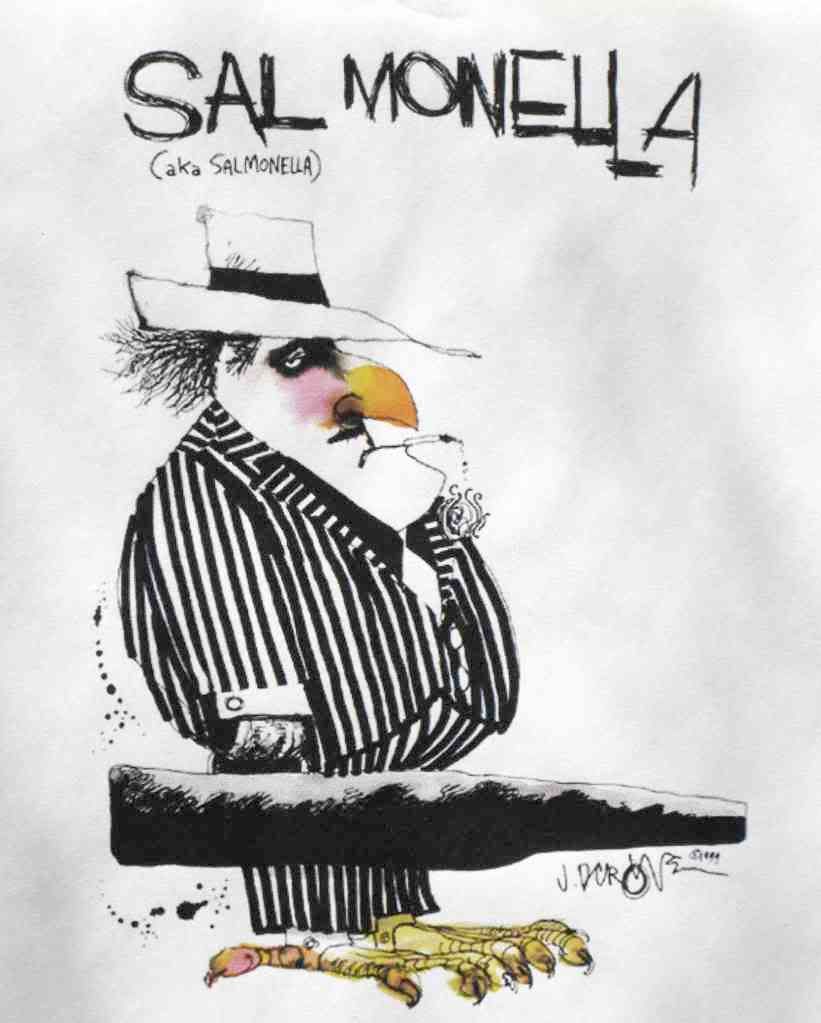Frozen rodents supplied by MiceDirect (Cleveland, GA) have been associated with 34 Salmonella (serotype I 4,[5],12:i:-) illnesses in 17 US states since December 2009. Half of the victims are children less than 12 years old.
According to the US Centers for Disease Control and Prevention (CDC), cases of salmonellosis caused by the outbreak strain have been confirmed in Alabama (1), Arizona (1), Colorado (1), Georgia (7), Iowa (1), Illinois (3), Massachusetts (3), Michigan (1), Missouri (3), North Carolina (3), Nevada (1), New York (2), South Carolina (1), Tennessee (1), Virginia (1), Wisconsin (3), and Wyoming (1). Only one person has been hospitalized.
North Carolina's three victims included two boys – one of them just 2 years old – and a 63-year old man. One of the three was hospitalized. Tennessee's lone victim was a boy.
Biggers & Callaham LLC. (doing business as MiceDirect) recalled its frozen rodent products on July 23, 2010 (recall notice is dated July 26, 2010) – after FDA found the outbreak strain in the production plant environment and in samples of the frozen rodents. The company also announced that, beginning on July 24, 2010, all of its frozen rodents would be irradiated to ensure microbiological safety.
This outbreak should be viewed simply as the continuation of an outbreak that began in the United Kingdom in August 2008 and lasted well into 2009. More than 400 people in England, Scotland, Wales and Northern Ireland were infected with Salmonella Typhimurium that was transmitted through contact with frozen rodents used as reptile food. The frozen rodents were exported to the UK by MiceDirect. The strain responsible for the UK outbreak – though given a somewhat different name than in the United States – was indistinguishable from the US outbreak strain, according to CDC.
This outbreak should be viewed simply as the continuation of an outbreak that began in the United Kingdom in August 2008 and lasted well into 2009. More than 400 people in England, Scotland, Wales and Northern Ireland were infected with Salmonella Typhimurium that was transmitted through contact with frozen rodents used as reptile food. The frozen rodents were exported to the UK by MiceDirect. The strain responsible for the UK outbreak – though given a somewhat different name than in the United States – was indistinguishable from the US outbreak strain, according to CDC.
According to the New York Times, the UK Health Protection Agency advised CDC of the British outbreak, and its association with MiceDirect's frozen rodents, in May 2009. At that time, there were no cases reported in the United States that matched the British outbreak strain.
The most recent illness included in the tally of 34 cases occurred on June 9th. As the contaminated rodents were only recalled on July 23rd, it is likely that more cases will be reported. It is even more probable – given the relatively low hospitalization rate (only one case so far) – that the number of unreported cases far exceeds the official tally of 34 illnesses.
CDC has posted the following Advice To Consumers who keep reptiles as pets:
- Wash your hands thoroughly with soap and water immediately after handling frozen rodents used as food for reptiles, or anything in the area where they are stored, thawed, prepared, and fed to reptiles.
- Wash your hands thoroughly with soap and water immediately after handling live rodents and reptiles, or anything in the area where they live and roam.
- Running water and soap are best. Use hand sanitizers if running water and soap are not available. Be sure to wash your hands with soap and water as soon as a sink is available.
- Keep frozen rodents away from areas where food and drink are stored, prepared, served, or consumed.
- Avoid using microwave ovens or kitchen utensils used for human food to thaw frozen rodents used for reptile feed. Any kitchen surfaces that come in contact with frozen rodents should be disinfected afterwards.
- Do not let children younger than 5 years of age or people with weakened immune systems handle frozen rodents.
- Use soap or a disinfectant to thoroughly clean any surfaces that have been in contact with frozen rodents. Children older than 5 years old should perform this task only under adult supervision.
- Recalled frozen rodents used as food for reptiles may still be in stores and in consumers' homes, including in the freezer. Any recalled product should be thrown away to prevent Salmonella infections in humans, pets, or other animals. This product should be disposed of in a closed plastic bag and placed in a sealed trash can to prevent people or animals, including wild animals, from eating it.
Reptiles and amphibians – snakes, turtles, frogs, lizards, etc. – can carry Salmonella without displaying any symptoms or signs of illness. These animals should always be considered as high risk sources of Salmonella, whether or not they have been fed the frozen rodents that are behind this outbreak. These are not suitable pets for young children to handle without direct adult supervision.
If you would like to receive automatic email alerts for all new articles posted on eFoodAlert, please click here or submit your request using the sidebar link. Please include "subscribe eFoodAlert" in the subject line.






No comments:
Post a Comment
Note: Only a member of this blog may post a comment.